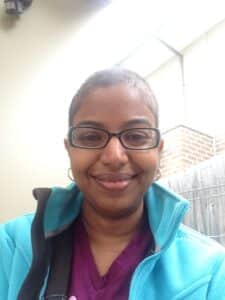- Research
- 2022-2026 Research Strategy
- Open Clinical Trials
- Closed Clinical Trials
- What is a Clinical Trial?
- Why Participate in a Clinical Trial
- Remote Telehealth Pre-Screening Process
- Research Achievements
- Publications
- Research Development and Funding
- Participating Intitutions
- International Collaboration
- BCT Trials & Projects Summary
- Translational Research
- Clinical Fellowship Program
- International Fellowship Support
- Annual Scientific Meeting
- Travel Grants and Awards
- About
- Our Impact
- Fundraise
- Donate
- Researcher Login
- Cart
Breast cancer treatment shouldn’t steal your life in order to save your life.
Everything changed for Naveena when she found out she had breast cancer at 39 years old.
Naveena underwent surgery to remove her tumour and endured two types of chemotherapy over six months. Then 30 rounds of radiotherapy over six weeks.
The following is difficult to read as the side effects of Naveena’s treatment knocked her down—time and time again, without a moment of relief.
She couldn’t move her arms above her shoulders because of scar tissue from surgery. Next came excruciating pain in her joints, which only grew worse with each day. Her body went into premature menopause and her nails and tongue turned blue. Then the nerve damage which caused shooting pain down her arms and legs.
But the most devastating side effect for Naveena was ‘chemo brain’. This is where people experience thinking and memory problems during and after cancer treatment.
When Naveena attempted to return to work, her mind and body couldn’t keep up. Naveena went from the top of her field—to being too sick to work.
With one in seven Australian women enduring breast cancer in their lifetime, we must act now to find more targeted, effective, and kinder treatments.
Too many women are suffering from long-term debilitating side effects—as they try to survive a terrible diagnosis. This is the harsh reality of many breast cancer treatments.
Your donation today will go towards the promising OPTIMA and EXPERT trials.
These trials aim to find out which patients can safely avoid chemotherapy and radiotherapy without compromising their survival through genomic testing.
Dr Nick Zdenkowski, Breast Cancer Clinical Trials researcher says:
“We need to tailor our treatments to the individual tumour. If we can do that, then we will give as much treatment as is necessary, but no more than is necessary.
If you give more treatment than required, then you may end up with side effects without the benefits.”
Currently in Australia, there is no genomic testing available to breast cancer patients—so Australians are missing out. You can help build the evidence which supports this genomic test being available to people in Australia.
You can help relieve the pain and suffering women are enduring both throughout and after their breast cancer treatment.



